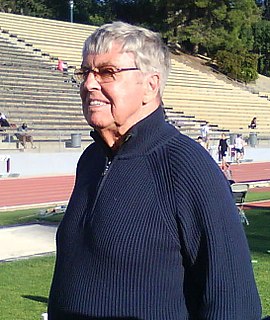A Quote by Jeff Bezos
The balance of power is shifting toward consumers and away from companies The right way to respond to this if you are a company is to put the vast majority of your energy, attention and dollars into building a great product or service and put a smaller amount into shouting about it, marketing it.
Related Quotes
There are times when you cannot even control the sugar level in your body. Remember that when you put sugar in your metabolism, you are upsetting your metabolism in a very direct way. X amount of sugar is understandable, but the amount of sugar you put in, only God can save you. And whenever you put x amount of sugar, you must follow the law of depression. When you get that kind of depression, you lose a lot of friends. Therefore, it is very fair to channel your energy. One of the best ways to channel the energy is to do the pranayama.
The only reason I was able to accomplish things is the great people willing to work with me. A company is a group of people organized to create a product or service, and that product or service is only as good as the people in the company - and how excited they are about creating it. I do want to recognize a ton of super-talented people. Without them, I would have accomplished very little. I just happen to be the face of the companies.
Over the past 60 years, marketing has moved from being product-centric (Marketing 1.0) to being consumer-centric (Marketing 2.0). Today we see marketing as transforming once again in response to the new dynamics in the environment. We see companies expanding their focus from products to consumers to humankind issues. Marketing 3.0 is the stage when companies shift from consumer-centricity to human-centricity and where profitability is balanced with corporate responsibility.
Some of the power has shifted from companies to people. Using social media tools (blogs, wikis, tagging, etc.) more individuals are creating semi-spontaneous 'groundswells' of opinions to which companies and other institutions are realizing they must respond. From marketing to consumers organizations are being pulled into engaging with individuals.
Problems tend to be put into their proper perspective the moment we get off SELF, and on PURPOSE. By choosing your purpose in life - a purpose that serves the greater good - and devoting the majority of your time, energy, and attention everyday toward living it, you discover the secret to a life of fulfillment.
The rules of engagement around building a brand have changed significantly over the past 10 to 15 years. Where companies at one time could spread their message through traditional marketing, consumers now seek an enduring emotional connection with the companies they patronize. The foundation of that connection is the most important characteristic of building a world-class brand: trust. Trust with your people and trust with your customers.
Cities are responsible for the vast majority of the creation of the economy. They're also places into which we pour the vast majority of resources, the vast majority of energy and the places where a huge percentage of the decisions about how systems are built and how products designed, etc., happen.
































